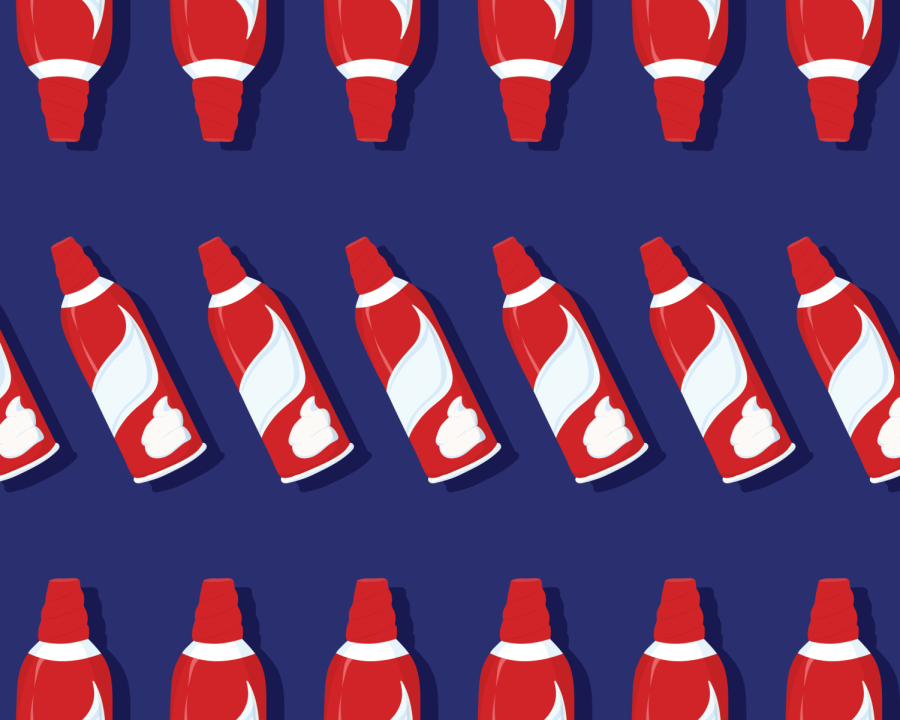A Bill Meant to Curb Drug Use is Comedic and Chaotic
Kids and adults alike can understand the simple joy of buying whipped cream from a grocery store. For most of us, whipped cream reminds us of our childhood and the satisfaction of a perfectly placed Cool Whip topping on our dessert. We don’t usually associate this delicious topping with drug use as media sources and legislation have this past summer.
Whipped cream has received an increasingly illegal association. A new bill, Bill S2819A, aims to prohibit the sale of whipped cream dispensers to minors. The steel cylinders that charge whipped cream canisters contain trace amounts of nitrous oxide, and the bill was created to curb consumers under the age of 21 who are using the canisters as inhalants to get high. The bill was approved in 2021 and defended by the 57 votes it received on June 1 by the New York State Senate (NYSS). Although backed by good intentions, this law has proven to be a nuisance.
According to the NYSS, a violation of this bill results in a $250 fine for an initial offense and a $500 fine for each subsequent offense. Yet, the New York Association of Convenience Stores (NYACS) did not start enforcing this penalty until months after it was approved on Nov. 25 due to a lag in the tracking of the law. This remains true even a year after the bill’s approval; when I checked the NYSS website for the current bill status, it says the bill was delivered to the governor but not yet vetoed or approved. Moreover, restriction and I.D. checks have only recently begun to pop up in the Capital Region, according to NYACS President Kent Sopris. There has been a lack of communication between state officials and businesses over this confusing new law.
As individuals began to learn about the bill, many questioned its intent. Senator Joe Addabbo tweeted on Aug. 29 that restricting the sale of whipped cream itself was never the goal. Instead, the bill was meant to prohibit the sale of individual chargers, which can be sold separately from the whipped cream canisters, to minors. Whether or not grocery and convenience stores continue to card customers for buying whipped cream is up to them, according to the senator. Once the real purpose of the bill is clarified, the question of why the law flew under the public’s radar is raised. Was the Senate aware of the controversy they knew would follow the bill, so they tried to silence its arrival?
While this law certainly caused a lot of chaos, it is grounded in a well-meant idea. The bill’s language was confusing right out of the gate. The Senate should have clarified the language immediately instead of waiting until the public caught the error. An easier transition from the governor’s desk to the public could have included a briefing by the Alcohol and Drugs Foundation (ADF) on the concerns about nitrous oxide usage. Psychosis, memory loss, depression, a weakened immune system and other serious long-term effects have been linked to nitrous oxide cartridges. Yet, nitrous oxide is still used in many real-life situations, from enhancing car engine performance to numbing at the dentist.
As for curbing minors’ use of inhalants, there is no statistical proof that Bill S2819A has been effective yet. It is unclear whether this is due to the lagging electronic issue that the bill is having or if there is genuinely zero evidence of any success. Hopefully, this strange bill will be a lesson for the Senate. There is an unfulfilled need for increased transparency between the Senate and New York citizens.
In all honesty, the situation has generated some great headlines. Media sources have wasted no time poking fun at Addabbo and his law. The bill hasn’t seemed to have had any harmful or adverse effects, so in times like these, this bill may have been the comedic relief that we all needed – even if that wasn’t its intention.
Olivia Teare, FCRH ’26, is an anthropology major and peace and justice studies minor from Duxbury, M.A.










































































































































































































